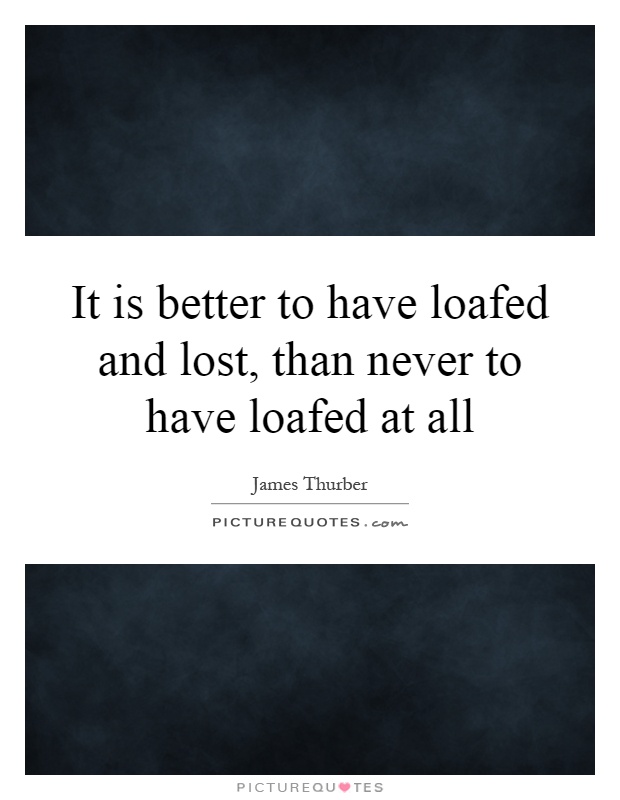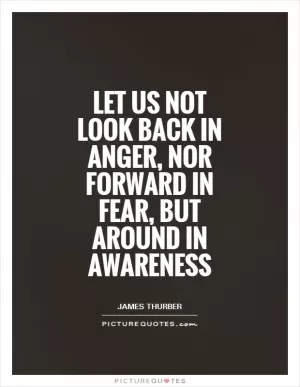
It is better to have loafed and lost, than never to have loafed at all

It is better to have loafed and lost, than never to have loafed at all
James Thurber, the renowned American author and cartoonist, was known for his wit, humor, and unique perspective on life. His works often explored the absurdity of human behavior and the complexities of relationships. One of Thurber's most famous quotes, "It is better to have loafed and lost, than never to have loafed at all," encapsulates his philosophy on the importance of taking time to relax and enjoy life.Thurber believed that leisure and relaxation were essential components of a fulfilling life. In a world that often values productivity and achievement above all else, Thurber's words serve as a reminder that it is important to take time for oneself and simply enjoy the moment. Loafing, or engaging in leisurely activities without a specific purpose or goal, allows individuals to recharge, reflect, and find joy in the simple pleasures of life.
Thurber's own life was marked by periods of illness and struggle, which may have influenced his belief in the importance of loafing. Throughout his career, he faced numerous challenges, including losing his sight in one eye due to a childhood accident. Despite these obstacles, Thurber maintained a sense of humor and a playful outlook on life. He understood the value of taking breaks, stepping back from the chaos of the world, and finding moments of peace and contentment.
Thurber's quote also speaks to the idea of embracing failure and learning from mistakes. Loafing, in this context, can be seen as a form of experimentation and exploration. By allowing oneself to relax and let go of expectations, individuals may stumble upon new ideas, insights, and opportunities. Failure is not something to be feared, but rather a natural part of the creative process. As Thurber himself once said, "Let us not look back in anger, nor forward in fear, but around in awareness."












 Friendship Quotes
Friendship Quotes Love Quotes
Love Quotes Life Quotes
Life Quotes Funny Quotes
Funny Quotes Motivational Quotes
Motivational Quotes Inspirational Quotes
Inspirational Quotes